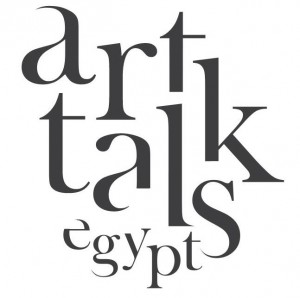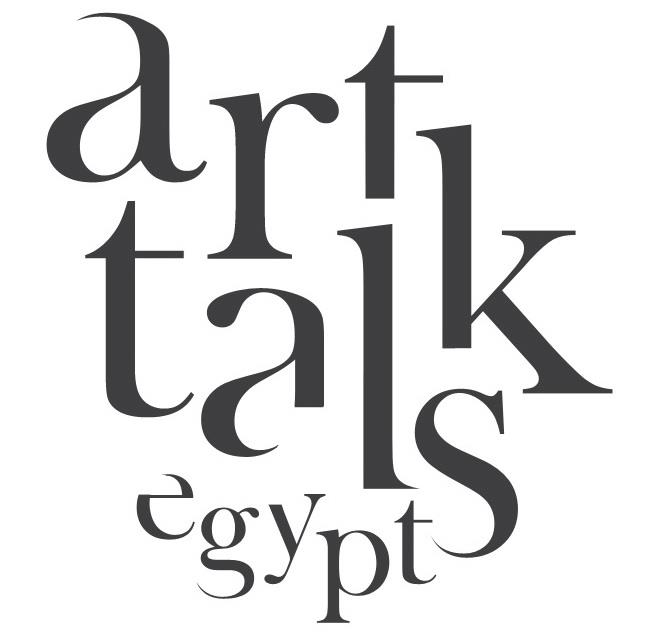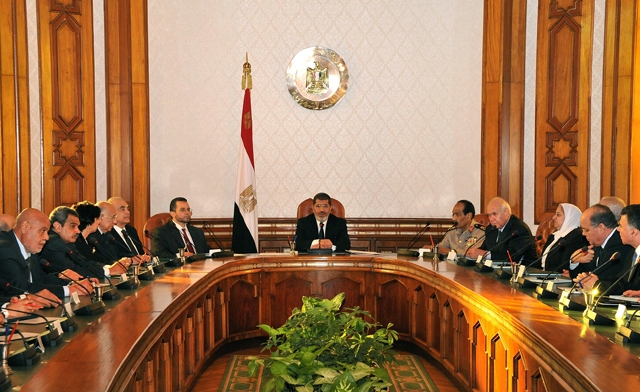
Courtesy of Art Talks’ Facebook page
Egypt’s long and diverse history of art is not readily apparent in its contemporary arts scene. Though Egyptians have long valued art and craftsmanship, limited information is available on the subject and many Egyptian art initiatives tend to overlook the diversity of fine arts in Egypt.
Art Talks is an educational and advisory space that is challenging this notion, with a new program of seminars, designed to educate the Egyptian public on Egyptian modern and contemporary art.
“ArtTalks was launched in October 2009 at the home of a prominent collector and a Talk presented by the former Managing Director of Christies, Middle-East,” says Faten Mostafa, founder of Art Talks.
“I organised over a dozen Talks since October 2009. Then, in April 2012, I expanded ArtTalks to become a full-fledged exhibition, education and advisory space,” she said.
Art Talks says their primary objective is to build a new generation of art collectors and art patrons within Egypt, which is why they focus on knowledge of art that originates from within the country.
“The ultimate objective is to put Egypt back on the regional arts map. Specifically, to establish ArtTalks as a highly selective search engine for Egypt’s next generation of contemporary artists, to grow the collectors’ base in Egypt by providing education and knowledge,” Mostafa said. “Art should no longer be an intimidating love affair,” she added.
Art appreciation is only enhanced by appropriate knowledge about art, and building a network of art patrons is crucial to Egypt’s position in the region’s art world, says Art Talks. Art Talks has also developed an Art Fund dedicated to publishing documentation books and financing the projects of artists and art spaces in Egypt.
“Egypt possesses the richest modern art history within the entire Middle-East. Hence, it is a mandate of mine to share that knowledge, keep it alive so it does not disappear and reminds us that we can be that ‘glorious’ again,” said Mostafa.
“We must be proud of our art history that kicked off at the turn of the 20th century and of the men and women who shaped it – be them artists, patrons, sheikhs or ministers,” she said.
“It is quite surprising that many of today’s art lovers, artists and collectors have little knowledge about that history and have meager understanding of who the pivotal Egyptian pioneer artists were, whose influence went beyond our borders. Knowing and respecting that past can only help us understand where we are today and how we can build a better tomorrow,” she said.
The idea for Art Talks came from the famous Nahdet Masr sculpture in Giza square. In the 1920s, Egypt’s prime era of liberalism, the government had no more money to finish the statue, and in an unprecedented wave of support, Egyptians from all walks of life contributed to its completion. After this era of artistic flourish, the art scene in Egypt suffered during the 1952 revolution but Art Talks says the time for another such period is now.
Art Talks also offers a service called Forgery Alarms where they add reported forgeries of famous works to their database to warn people if they happen to encounter them on the market.
The database is user-updated via an email to Art Talks and they say the service has never been more important in a time where even the most seasoned connoisseurs have been fooled by fakes. Until Egypt gets the same technology used in world-class museums, Art Talks says the service is necessary.
“I am a firm believer that knowledge breeds confidence, appreciation, and ultimately encourages ‘collecting’,” said Mostafa.
“Education is a primary aspect to ArtTalks as it acts as a way of breeding a future audience or turning art lovers into art collectors. The more you know, appreciate and see, the more powerful and comfortable you will feel when putting money in an artwork,” said Mostafa.
So long as Egypt does not have enough good quality art history and art appreciation books & decent art museums, we feel the need to make that knowledge accessible and affordable through our seminars. Collecting art is expensive and intimidating. Hence, one needs tools to decide and to invest. We want to provide these tools,” she said.
Art Talks gives seminars that are meant to be educational in nature, “our seminars are given by cultural practitioners who either studied, or researched or work within the arts field,” Mostafa said.
“Education is an important aspect in our equation. The other is picking, mentoring and exhibiting highly talented young artists to become the next “Mahmoud Said” or “Gazbia Serri”. Half of our income goes into an Art Fund that we manage and that we spend on supporting some of these young artists,” she said.
The Zamalek based initiative hosts a few exhibitions throughout the year but their real focus is in education and disseminating proper knowledge about art. Art Talks’ current exhibition is on show until the middle of January.
Mostafa says Art Talks is open to everyone, “anyone interested in art can attend our seminars. All you need to do is enrol as soon as we announce them on our website. They are free for Egyptian artists. For anyone else, they need to pay a fee.”




